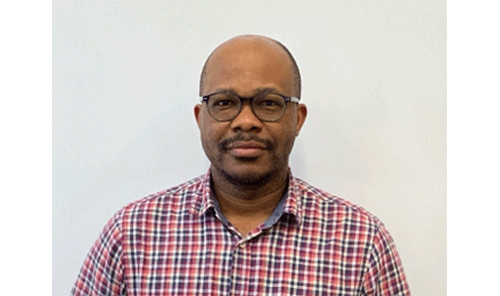Uchendu Eugene Chigbu
Africa is indeed urbanising at a very high rate. One does not need research to become informed about that. Wherever you are, all you need to do is look at how your city is growing. After synthesising the most recent academic data from global development organisations (including the United Nations), the picture of an urban world is damning. Today, only three of the biggest 20 cities of the world are in Africa (Cairo, Kinshasa and Lagos). However, various studies forecast that 13 of the world’s 20 biggest urban areas will be in our continent by the end of this century. Five of those cities to shape the urban dynamics of Africa will be Lagos (Nigeria), Khartoum (Sudan), Kinshasa (Congo), Mombasa (Kenya) and Abidjan (Ivory Coast). According to a recent article in the Washington Post (a globally reputable American daily newspaper), these African cities, and many others unmentioned, will become humanity’s biggest megalopolises before 2100 due to the continent’s unprecedented urban growth rates. Megalopolises are heavily populated and complex cities consisting of a network of several metropolises. This urban growth is already being shaped by spatial dynamics caused by high birth rates, rural migrants fleeing from rural poverty, and conflict situations, etc. Many people fail to realise that these statistics have a strong bias towards population growth and migration. Africa is simply a rural continent, and will remain so for a long time when viewed from land use. Urban land in Africa covers only 1% of the continent, despite housing 43% of the population.
Why is rural development, a subject that caters to the land covering almost the entire continent, not getting as much attention as urban development? I can only speculate that it may have some things to do with two main reasons. First, educational bias and planners’ bias. Academically (educational bias), having a university degree is almost equal (falsely) to being modern or urban. No wonder most of our so-called degree holders in Africa have lost their rural minds. Planners’ bias means that trained planners (who are supposed to lead in development planning) mostly live and work in cities. Even when they engage in rural planning, they do so with an urban mindset. Most of them do not care about the rural. And like most development practitioners, they follow the money too. Second, development practitioners are stuck with following the money rather than the problems. A large chunk of development funding is available for urbanisation issues. Hence, many want to work on urban issues because that is where the money is. The governments also follow the money too. The most significant chunk of their revenues come from urban areas. Since the government is all about money, they also neglect our rural areas because the money is not there.
However, rural areas are as important as urban areas in the development of African countries for many reasons. Governance is about improving the living conditions of people. More people live in rural areas of Africa, yet their living conditions are not given priority. How many times do you read about urban forests? The address of our forests (now considered a tool for fighting climate change) are in rural areas. How often do you read about urban agriculture (I mean really)? Most land that supplies the food we eat in this continent is rural. Yet, we look down on rural people. Our tourism relies primarily on rural areas too. Politically speaking, our governments rely on rural populations to get their votes and spring into power. Yet, they lack the political will to develop rural areas.
To all you urban development warlords, I have news for you. More rural land will be needed for urbanisation to be managed in the future. Rural land will remain in high demand as the urban population grows. In 2019, the United Nations Human Settlements Programme (UN-Habitat) projected that people living in cities would increase by 175% by 2030. This means that urbanisation will continue to put pressure on land in Africa. The UN-Habitat also noted that 70% more agricultural land will be needed to ensure food security for everyone to increase food production by 2050. All of these—land, food, and even a substantial number of people living in these cities—will have to come from the rural areas. This means that the development of rural areas must be made a priority. It requires the revitalisation of African rural areas to become spatially functional, economically viable and socially cohesive within the frame of different national development agendas.
I present my tips for revitalising Africa’s rural areas through land management. Revitalising rural areas means recognising rural areas as vital to national development. Developing them demands taking actions to improve their places (land), populations (people) and living conditions (employment and socioeconomic opportunities) to function for the benefit of all. It requires policymakers to acknowledge that development is about people and their land (or place), and then introduce rural planning and development visions. The visions must equally support rural and urban planning by encouraging campaigns to protect rural areas. All these necessitate creating rural socio-political visions, rural policies, rural-centred measures and participation to support rural heritage improvements (and protection). Rural heritage connotes the land, development-oriented cultures, and people’s welfares. Vision (necessary in political manifestos, policies and implementation activities) entails a framework for rural development that will benefit urbanisation. Rural policies will represent the rules that will govern rural development. Rural-centred measures relate to the tools (including approaches for action). Participation is the people-oriented engagement (or labour) that will give rural revitalisation social legitimacy.
*Uchendu Eugene Chigbu is an Associate Professor (Land Administration) in the Department of Land and Property Sciences (DLPS) at the Namibia University of Science and Technology (NUST). The views expressed in this article are entirely his, and not that of NUST.


